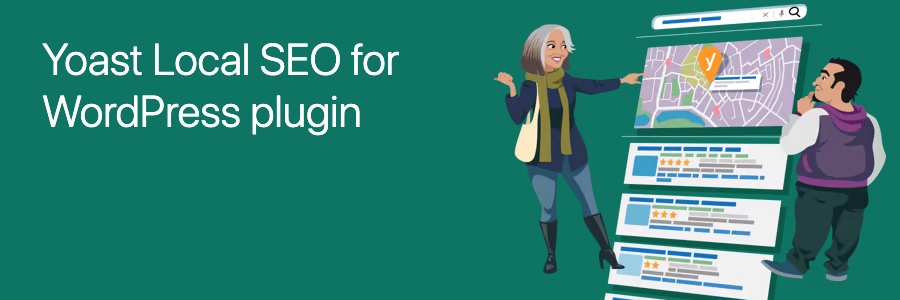How to Apply Localized Marketing to WordPress

For blogging, it doesn’t get any better than WordPress. WordPress is an extremely popular site. It has over 409 million people viewing more than 20 billion pages each month. And its users churn out about 70 million new posts and 77 million new comments each month. And it can host over 120 languages, the chief of which are English, Spanish, Indonesian, Portuguese, French, Russian, German, Italian, Turkish, and Dutch.
Today, we’ll talk about localized marketing and why it’s important. Then we’ll see four ways to use a localized marketing strategy for your WordPress blogs, such as inbound marketing, multilingual SEO, social media, and plug-ins. To wrap up, we’ll show you how to grow a multilingual audience with plugins, freelance localizers, or localization services for your WordPress blog.
Are you looking for ways to localize your WordPress blog? Read on to find out how.
What Is Localized Marketing?
Localization is the process of adapting content, websites, or any other output to fit the needs of a locale. Marketing is the process of promoting products, services, or, in this case, WordPress blogs.
Localized marketing is the process of localizing your marketing strategies. When applied to WordPress blogs, it means adapting your WordPress to different contexts such as location, culture, or market.
To be truly a multilingual WordPress blog, you have to adapt your language and your content. This means your email marketing, your inbound marketing, your social media, and all other aspects of marketing for your website should also be optimized according to your target audience. You can build a localized website on your own, or with a tool such as Total & Toolset.
Remember that you have to factor in the location, not just language. For example, if you’re marketing to a French Canadian audience, it will be different than how you market to a French Parisian audience. So, you’ll need to adjust your marketing strategies accordingly.
Why Is It Important?
Localized marketing is important because to reach an audience that you’re targeting, you have to walk the walk and talk the talk. What does that mean? It means you’re going to have to connect with your target audience in a natural way, speaking their language, and knowing their culture. Aside from translating your website for a target audience, you should also curate your content for that audience.
To truly understand your target audience, you’re going to have to create a multilingual website, use localized content, and create a localized marketing strategy. Localization is one way to really connect with your audience, their way. When you use localization strategies for your marketing, you’ll be promoting what’s relevant to that specific locale, rather than applying a general marketing strategy that might not work for your specific audience.
4 Ways To Use a Localized Marketing Strategy for WordPress

So now that you have a better idea of what localized marketing is, let’s get started on four ways you can apply a localized marketing strategy for your WordPress blog: inbound marketing, multilingual SEO, social media marketing, and of course, plug-ins.
Inbound Marketing
Inbound marketing focuses on organic ways promote your website, mainly creating and distributing content that draws people to your site. Content marketing should be a huge part of your inbound marketing.
For your WordPress blog, you’re going to have to do a lot of content curation in order to apply a localized marketing strategy. That means blog posts should cater to your local audience. Valuable content that your target audience can understand may help to personalize the experience of each of your target users.
If you’re targeting Australia, content creation and curation may mean creating content on your WordPress blog about trending topics, news, and evergreen content that will appeal to Australians. This could mean referencing the show Bluey on your entertainment news blog, covering Sydney home prices on a real estate site, or adding a surf report widget to a local sporting goods online store. You should pay attention to news sources and social media to determine topics that are directly relevant to your audience.
Since one of the major roles of inbound marketing is to create brand awareness, reaching out to a target locale through localized inbound marketing can create opportunities for your WordPress blog. For example, by localized marketing in Australia, you may create brand awareness not only in Sydney but also in Melbourne and any other locations within Australia.
Multilingual SEO
Multilingual SEO is key to inbound marketing as well, but I chose to create a separate topic about it because of its relevance. By applying localized marketing via multilingual SEO to your website, you can increase your chances of ranking in Google for specific locations. For example, in New York, you’ll be ranking in Google US, but in London, you need to rank in Google UK.
To apply multilingual SEO to your website, determine your target audiences then get started with keyword research. Identify keywords for locales and languages, using a tailored search tool that concentrates on location. Make sure to pay extra attention to meta titles and meta descriptions with those keywords, too. Tools such as TranslatePress are especially useful for WordPress blogs and multilingual SEO.
If you haven’t already, you should also be using a multilingual site structure like subdomains or subdirectories, to house dedicated translations for your site. Subdomains are usually separated by languages or locations. Using the hreflang tag as well for your subdomains is recommended This is a specialized tag that will make sure Google displays the appropriate version of your site to visitors – so results will send the English version to your English readers as opposed to your Spanish readers. Read more about hreflang best practices here.
Social Media
Like many businesses, you probably have social media accounts created to promote your blog. These may be translated to your target languages, but social media localization is more than just translation. It’s also about content, geotags, and keywords.
When it comes to localization, it takes more than translating your social media into another language. What really matters is that your social media posts are curated content adapted for a specific culture, which is content localization.
Since social media topics are all about trending topics, it can be helpful to create geotags for your hashtags.
If you didn’t think keyword research was essential for social media, you’re wrong. It’s essential that you find proper translations according to dialects and age groups in your target locale. Translated keywords should be used in posts and added into captions when you’re promoting your WordPress blog. This can help your posts’ rank within social media platforms and on Google as well.
With content localization for social media, you’ll also have to pay attention to culture, particularly pop culture for your locales. Make sure time, dates, and spelling are localized as well – e.g. if you’re sharing an event in the Boston area, using PST just wouldn’t make sense. Also, pay attention to trending topics within the general culture of your audience (which will come easier for your social media as you localize content for your WordPress blog). This can mean focusing on locally celebrated holidays, regional foods, specific music and more.
Localization Plugins
There are many translation plugins that also double as localization plugins. Here are the recommended ones:

Weglot: Weglot is a translation plugin that can turn your site multilingual, so you don’t have to worry about subdomains or hreflang. It’s also optimized for multilingual SEO and is user-friendly for your localized content.

Geo My WP: For location-based marketing such as localized marketing, you need some geotags in your localization strategy. Geo My WP comes with geolocation and mapping, so your users can find posts based on address, location, distance, and more.

Yoast Local SEO: If you really want to target your SEO, Yoast is the plugin to use. And with the Local addon it can increase your chances of ranking based on location, multilingual SEO, and more. It’ll take care of all the technical SEO for you.
Growing a Multilingual Audience With Localized Marketing

Growing a multilingual audience with localized marketing for your WordPress blog will rely a lot on your content localization strategy, as well as your multilingual SEO, social media localized marketing, and more. When you do this successfully, your brand awareness can in turn increase your local customers, your traffic, and possibly your conversions.
You can work with free plugins, local freelancers, or localization services to really achieve your desired results. With free plugins, you can customize your WordPress localizations to the max, but you will have to manage the research and translations yourself. On the other hand with localizers, you can consult the best marketing strategies for your WordPress site. And with localization services, you can let a pro translate, localize, and create truly local content for you. Most companies will assist you with the entire process from start to finish. But it’s up to you, which ones you’ll use, and which is the best for your WordPress site.
Applying localized marketing to your WordPress site doesn’t have to be so difficult. It will rely on a combination of marketing strategies for specific locales and target specific audiences, but it’s certainly manageable.
Keep in mind that as you identify more locales you’re going to have more work to do. When you have ten different local sites each will have their own localized strategies. So I recommend starting small, aim for two or three. Keeping it small will be easier to truly curate your content and use geotags, SEO, and social media strategically. The more optimized posts you have that are relevant to your local audience, the more likely you’ll capture their attention. You’ll start seeing the rewards of your efforts, either in ranking on local Google, in a boost of traffic to your site, or in more shoppers in your WooCommerce store.
Localization is one of the first steps to truly personalize your user’s experience, and the first step in globalizing your WordPress company. With the right help from plugins, localizers, and localization services, you’ll have a truly local marketing effort in your hands.
Going local doesn’t have to be just with purchasing organic vegetables, but targeting truly local customers through localized marketing. So go localize today.



